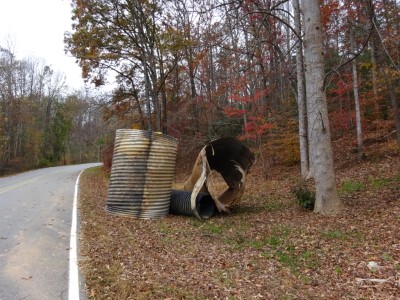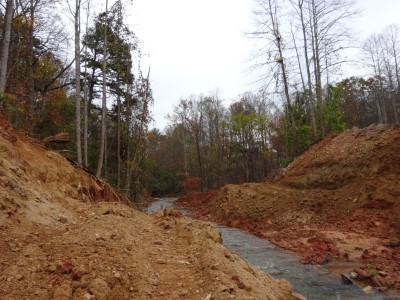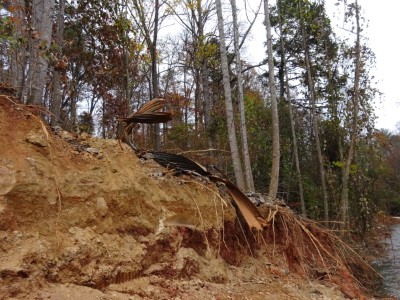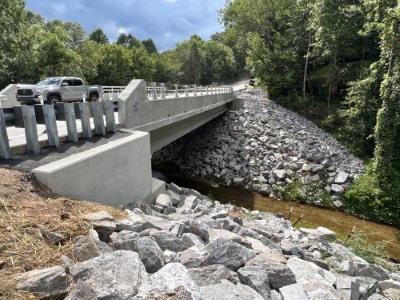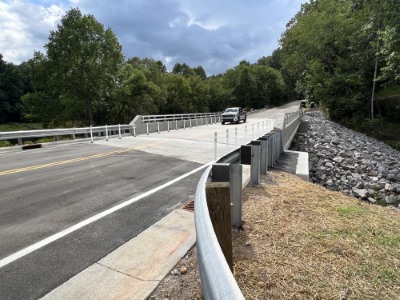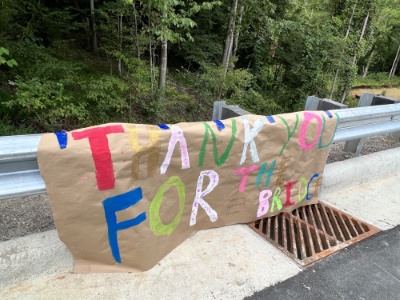Small Bridge Makes a Big Impact in North Carolina
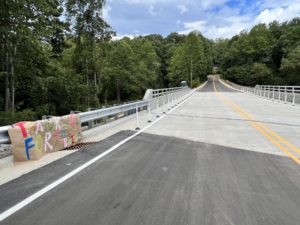
In November 2020, a storm in Wilkesboro, North Carolina, ripped out three 8.5-foot corrugated metal pipes (CMP) along Woodfield Way, completely closing a major road that connected the people who lived in the county with quick access to the Town. The Town of Wilkesboro reached out to Freese and Nichols to put together a scope of work to replace the blown-out culverts. The first step of the project was to analyze the hydraulic conditions and propose three alternatives for Town consideration. In the existing conditions analysis, it was observed that the previous culverts overtopped in as little as the 25-year storm event. This was confirmed by reports from nearby residents that attested to frequent flooding events at this specific crossing.
The first alternative solution looked at replacing the culverts with two 10’x10’ and one 10’x8’ box culverts. The box culverts solution would pass everything but the 100-year event, which was within the minimum requirements for the roadway. The second alternative looked at a proprietary system, a one 25’ CMP countersunk 3’, as supplied by Contech. The large CMP would pass the 100-year event but would be significantly more expensive. The final alternative looked at replacing the culverts with a single-span bridge. This alternative would pass the 100-year event with amble free broad and was cost competitive. Ultimately, the Town decided to move forward with this bridge alternative.
Freese and Nichols assembled a multi-discipline team to complete the bridge design, with team members from our Water Resource Design, Structural, Transportation Design, Stormwater, Fluvial Ecosystem Restoration, and Construction Management disciplines. Individuals from North Carolina and Texas worked together to develop details and standards for a project that had no precedent within Freese and Nichols, and the bridge opened in August 2022.
Assistant Project Manager Emily Brown visited Wilkesboro shortly after construction finished. “I drove across the first FNI bridge in North Carolina and observed several members of the community walking around and taking pictures of their new bridge,” Emily said. “A ‘Thank You’ sign had been hung along the bridge and I couldn’t help but stop and feel honored to have been a part of this project. It had its challenges, but at the end of the day, FNI made a positive impact on this community.”
